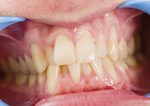By Richard T Lishman
Every year, millions of working days are lost across the UK due to sickness and injury averaging out at about 16 days per person – and dentists are no exception.[i] If anything, dentists are at greater risk of becoming ill or suffering from an injury than many other professionals, as dentistry is such a physically and mentally demanding occupation.
That is why you need income protection – a policy designed to pay you an income if you are unable to work due to sickness, injury or an accident. That way, if the worst were to happen, you can rest assured that your livelihood is protected regardless of how long you are off work.
Now, there are more than 50 income protection plans available at any given time, so be sure to examine all of the options available to you. Here’s what you’ll need to consider:
- Level of incapacity: All insurance companies base claims on how ill you have to be prior to any benefit being paid, but whether or not you receive a payout will all depend on which incapacity level you choose. Selecting ‘own occupation’ policy will provide you with the most comprehensive cover, as it ensures that your claim will be assessed on your ability to perform your duties as a dentist. ’Any occupation’ cover on the other hand will only pay out for as long as you’re unable to work, so if you were declared fit to work payments would be stopped – regardless of whether you could return to practice or not.
- How long can you afford to wait before making a claim? With income protection policies there is what is known as the ‘deferred period’, which means you can either choose to be paid from the first full day you are off sick or defer your claim to a later date. Generally, a shorter deferred period will increase the cost of your cover.
- Guaranteed or reviewable premiums: If you were to go for guaranteed rates, the amount that you would pay for your cover would remain the same for the duration of the plan, irrespective of how many claims you make. Alternatively you could select a reviewable premium, which is where your monthly payment would be reviewed after a set period of time and can be increased based on their overall claims experience.
- Exclusions: When choosing income protection cover be sure to check the policy for any potential limitations or exclusions. These may vary depending on the insurer that you opt for, but typical exclusions where you won’t receive a payout can include pre-existing medical conditions and illness or injury that is self-inflicted.
To find out more about income protection or for expert help and guidance with finding a suitable policy, contact the Independent Financial Advisers at money4dentists today.
For more information please call 0845 345 5060 or 0754DENTIST.
Email info@money4dentists.com or visit www.money4dentists.com
About the author
Richard T Lishman is Managing Director of money4dentists, a firm of specialist Independent Financial Advisers who help dentists across the UK manage their money and achieve their financial and lifestyle goals
[i] Health and safety executive: Working days lost. Accessed online 2 May 2017 at http://www.hse.gov.uk/statistics/dayslost.htm







 Nobel Biocare announces outstanding programme for London Symposium 2017
Nobel Biocare announces outstanding programme for London Symposium 2017

